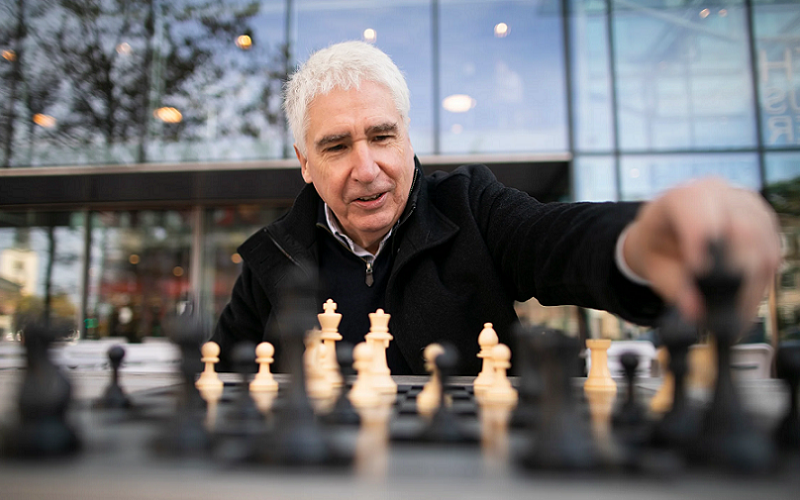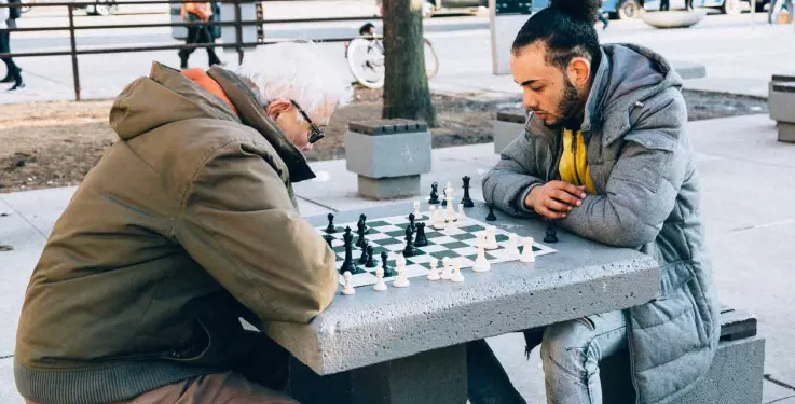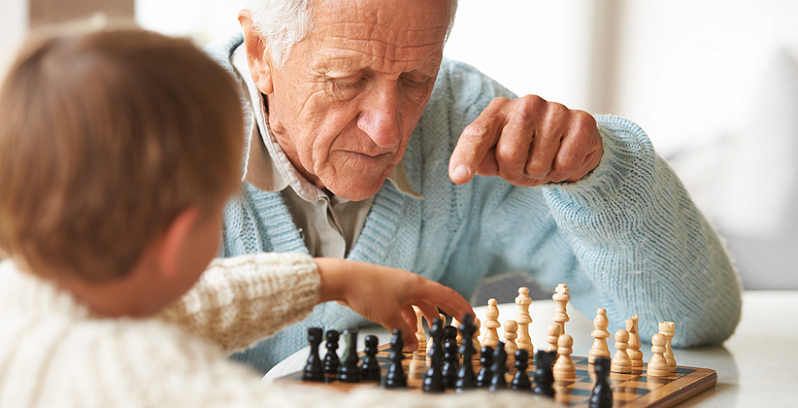
In the intellectually demanding world of professional chess, cognitive abilities such as memory, strategic thinking, and rapid decision-making are paramount. These skills, honed over years of intense practice and competition, are the bedrock of a chess player’s success. However, like any high-level cognitive activity, chess is not immune to the effects of cognitive decline. This decline, often subtle and insidious, can significantly impact a player’s performance and decision-making abilities.
Here we explore the critical cognitive skills involved in chess, identify the signs of cognitive decline specific to this elite group, and examine the various factors contributing to this decline.
Contents
Overview of Cognitive Skills in Chess
Chess is not just a game of pieces and boards; it’s a sophisticated dance of the mind, requiring a unique blend of cognitive skills. To appreciate the impact of cognitive decline on professional chess players, it’s crucial to first understand the mental faculties that are central to their mastery of the game.
Memory and Pattern Recognition
One of the key cognitive skills in chess is memory, particularly the ability to remember and recognize patterns. Chess masters store thousands of opening moves, middle-game positions, and endgame strategies in their memory. This extensive knowledge allows them to quickly recognize patterns on the board, predict their opponent’s moves, and strategize accordingly. A strong memory helps players recall previous games and learn from them, continuously building their repertoire of strategies and responses.
Pattern recognition goes hand-in-hand with memory. It’s not just about recalling specific positions, but also about recognizing broader patterns and motifs that occur in various games. This skill allows chess players to navigate complex positions and identify opportunities or threats in the arrangement of pieces. Effective pattern recognition is often what sets apart novices from experts.
Strategic Thinking and Problem-Solving
Chess is a strategic battle, requiring players to think several moves ahead. This forward-thinking involves anticipating the opponent’s moves and formulating long-term strategies. It’s a sophisticated form of problem-solving, where each move is a decision that can lead to a multitude of possible outcomes. Players must weigh the risks and benefits of each move, often under time constraints.
This aspect of chess necessitates not only a deep understanding of the game but also an ability to adapt strategies based on the changing dynamics of the board. It’s about planning, but also about flexibility and adaptation.
Speed and Precision in Decision-Making
In many chess formats, especially those with time constraints, speed is crucial. However, this speed must not come at the cost of precision. Rapid decision-making is a skill that combines quick thinking with accuracy. Chess players must assess the board, make calculations, and decide on the best course of action, all within a limited time frame.
This skill is a true testament to a player’s mental agility and their ability to maintain concentration and focus. It’s not just about making the fastest move, but the best move in the shortest amount of time. This combination of speed and precision is what often leads to victory in high-pressure chess matches [1].

Signs of Cognitive Decline in Chess Players
Cognitive decline, a concern in many professional fields, manifests uniquely in the world of chess. Recognizing these signs is crucial for players, coaches, and enthusiasts alike, as it helps in understanding the challenges faced by chess professionals and in finding ways to address them.
Decreased Performance and Ranking
A clear indicator of cognitive decline in chess players is a noticeable drop in their performance and ranking. This decline can be gradual or sudden and is often more pronounced in players who have maintained a consistent level of high performance over the years.
It may manifest as a series of uncharacteristic defeats, difficulty in winning games that once would have been straightforward, or a gradual descent in international rankings. While fluctuations in performance are normal, a consistent downward trend can be a sign of underlying cognitive issues [2].
Slower Decision-Making
Speed is a critical component in chess, especially in formats with strict time limits. As cognitive faculties begin to decline, one of the first signs is a decrease in the speed of decision-making. Players may take longer to make moves, appear hesitant, or struggle with time management during games. This slowing down is not just in response to complex or unfamiliar positions but can also occur in situations that a player would have previously navigated with ease.
Difficulty in Complex Strategies
Another sign of cognitive decline is an apparent difficulty in executing or responding to complex strategies. Players who once excelled in creating intricate, multi-layered game plans may start favoring simpler, more direct approaches. This change is often subtle and may be initially attributed to a change in style. However, if accompanied by other signs of cognitive decline, it could indicate a decrease in the player’s ability to handle the strategic depth and complexity that chess demands.

Factors Contributing to Cognitive Decline in Chess Players
Understanding the factors that contribute to cognitive decline in chess players is key to developing strategies for mitigation and adaptation. These factors are often a complex interplay of biological, psychological, and lifestyle elements that affect cognitive functions.
Age-Related Changes
Age is a primary factor in cognitive decline. As players age, they often experience natural decreases in processing speed, memory retention, and the ability to learn new information quickly. These changes can affect their game, especially in a sport that relies heavily on these cognitive abilities. The decline isn’t uniform for all players and can be influenced by genetics, overall health, and mental activity levels throughout life [3].
Psychological Stress and Burnout
The high-pressure environment of professional chess can lead to psychological stress and burnout, significantly impacting cognitive functions. Chronic stress affects memory, concentration, and decision-making abilities. Burnout, a state of physical and emotional exhaustion, can further exacerbate cognitive decline. It’s often a result of the relentless competition, constant travel, and the pressure to stay at the top, leading to fatigue and reduced mental sharpness.
Physical Health and Lifestyle Factors
Physical health and lifestyle choices play a crucial role in cognitive health. Factors such as poor diet, lack of exercise, insufficient sleep, and substance abuse can all contribute to cognitive decline. A healthy lifestyle supports brain health, while negative habits can accelerate cognitive deterioration. Chess players, like any other professionals, are susceptible to these lifestyle influences, which can indirectly impact their performance and cognitive abilities [4].
Mitigating Cognitive Decline in Chess Players
While cognitive decline can be a daunting prospect for professional chess players, there are several effective strategies to mitigate its effects. These approaches focus on enhancing brain health, adapting to changes, and maintaining a balanced lifestyle.
Brain Training and Mental Exercises
One of the most direct methods to combat cognitive decline is through brain training and mental exercises. This can include chess-specific practices like studying games, solving chess puzzles, and playing regularly. Beyond chess, activities that challenge the brain in different ways – such as learning a new language, playing a musical instrument, or engaging in different types of puzzles and brain games – can help maintain cognitive flexibility and sharpness. These activities stimulate neural plasticity, which is crucial for sustaining cognitive abilities [5].
Healthy Lifestyle Choices
A healthy lifestyle is foundational to maintaining cognitive health. This includes a balanced diet rich in nutrients that support brain function, regular physical exercise, adequate sleep, and stress management. Exercise, in particular, has been shown to improve brain health by increasing blood flow and promoting the growth of new brain cells.
Adequate sleep is vital for memory consolidation and overall brain function. Additionally, managing stress through relaxation techniques, meditation, or therapy can help maintain cognitive performance.
Psychological Support and Stress Management
Given the high-pressure environment of professional chess, psychological support and stress management are critical. This can involve working with sports psychologists to develop coping strategies for the stresses of competition and the psychological impacts of aging. Building a support network of coaches, peers, and family can also provide emotional support, helping players deal with the pressures of the profession and the challenges of cognitive changes.
References
[1] 125-Year Study of Chess Matches Suggests We Don’t Peak at The Game Until Our 30s
[2] Chess Practice as a Protective Factor in Dementia
[3] Study of chess player performance over many years suggests brain peaks at age 35
[4] At What Age Do Chess Players Peak?
[5] Scientists Analyzed 24,000 Chess Matches to Understand Cognition

